
Self-criticism and criticism: The issue that President Ho Chi Minh always mentioned in every revolutionary stage under the leadership of the Party.
Through the speeches and writings of President Ho Chi Minh from the early days of the establishment of the people's government after the August Revolution of 1945, through the 9 years of resistance against French colonialism to the years of resistance against American imperialism, he clearly demonstrated his strict sense of self-criticism, as well as sincere criticism of the mistakes of cadres, party members, and compatriots, turning self-criticism and criticism into a widespread movement, hoping that everyone would progress together, to contribute more to the common cause of the nation.
After the August Revolution of 1945, in an article titled How to organize people's committees , published in the newspaper Cuu Quoc , President Ho Chi Minh pointed out: "Before the opening day of the Committee, anyone who has any suggestions, questions or criticisms should send them to the Chairman" (1). Also in the newspaper Cuu Quoc , his article titled To become a good cadre, one must have a spirit of self-criticism had a passage: "After each working day, one must self-examine... If one does not self-criticize, one will never progress" (2). On November 20, 1946, in the Order to Find Talented and Virtuous People by President Ho Chi Minh published in the National Salvation Newspaper, there was a passage: “The country needs to be built. Construction requires talented people. Among the 20 million compatriots, there is certainly no shortage of talented and virtuous people. I am afraid that the Government does not listen to, does not see everywhere, so that talented and virtuous people cannot come from. I admit that shortcoming. Now, if we want to correct that , and make good use of talented people, localities must immediately investigate where there are talented and virtuous people who can do things that benefit the country and the people, and must immediately report to the Government. The report must clearly state : name, age, occupation, talent, aspirations and residence of that person. Within one month, local agencies must report in full” (3).
Through the above articles, we can clearly see the way to organize the people's revolutionary government, the requirements for the working attitude of government employees before the nation and compatriots; as well as the way for civil servants to train themselves and improve their qualifications through actual work is self-criticism, thereby drawing experience to become more mature. In particular, through the Order to Find Talented and Virtuous People, as well as through the article titled Self-criticism , published in the National Salvation Newspaper on January 28, 1946, when President Ho Chi Minh admitted his mistakes, he wrote: "The successes are thanks to the efforts of the people. The above shortcomings are my fault" (4); through this, we can clearly see the spirit of strict self-criticism of President Ho Chi Minh, when he took the highest responsibility as the head of the Government before the nation and compatriots; at the same time, affirmed his determination to make corrections by clearly stating the required content to be implemented, the agencies responsible for implementation as well as the deadline for completion. This can be considered a model of revolutionary self-criticism, not general, perfunctory, or perfunctory, but full of responsibility and determination to correct mistakes.
The most concentrated and complete expression of the contents of self-criticism and criticism according to Ho Chi Minh's thought is the work "Improving the way of working" , written by him in October 1947. When talking about the role of self-criticism and criticism, President Ho Chi Minh pointed out: " Always use and skillfully use criticism and self-criticism, then the shortcomings will definitely disappear, the advantages will definitely increase and our Party will definitely win" (5). He affirmed: "A Party that hides its shortcomings is a rotten Party. A Party that has the courage to admit its shortcomings,... is a progressive, bold, and steadfast Party..." (6); "MUST TRAIN PARTY NATURE", "must vigorously use criticism and self-criticism ... Only then can the Party develop quickly" (7).
President Ho Chi Minh pointed out the purpose of self-criticism and criticism for revolutionaries: “Help each other to improve, help each other to progress… The core is solidarity and internal unity” (8). When carrying out self-criticism and criticism, revolutionaries “should not use sarcastic, bitter, or stabbing words. Criticize actions, not people” (9), “must self-criticize vigorously, and with kindness and sincerity, vigorously criticize their comrades . Those two things must go together” (10), “When criticizing them, we should not be harsh. When praising them, we must let them understand that: each person’s capacity has its limits, even if they are successful, they should not be arrogant. Arrogance is the first step to failure ” (11).
President Ho Chi Minh also pointed out common shortcomings in self-criticism and criticism , which are “If you don’t criticize something to your face, you’ll talk about it behind your back… Never make any suggestions to the Party”, “When criticizing someone, it’s not for the Party, not for progress, not for work, but only for personal attacks, stubbornness, revenge, pettiness”, “fear of losing one’s prestige and dignity, not daring to self-criticize” (12)…
In particular, he pointed out the mistakes in the motives, attitudes, and political awareness of some individuals when conducting self-criticism and criticism: “Taking advantage of mistakes and shortcomings… to achieve selfish goals… That is the attitude of speculative party members and cadres”, “Not criticizing, not self-criticizing. That is the attitude of cowardly and weak party members and cadres”, “towards those with such shortcomings and mistakes, as towards cobras and dragons… demanding that they be expelled from the Party immediately. If the Party does not do so… they become discouraged, disappointed… They even leave the Party. That is the attitude of overly mechanical people. That is also the disease of “subjectivity”, “committing the shortcoming of narrow-mindedness” (13).
The correct attitude and method in self-criticism and criticism of cadres and party members were clearly pointed out by President Ho Chi Minh: "Clearly separate what is right and what is wrong"; to do so, we must "Strive to study and improve good models"; "Strive to fight to correct shortcomings, not let them develop, not let them harm the Party"; "Skillfully use criticism and self-criticism to help other comrades correct mistakes and shortcomings, help them progress"; "Unite the Party through internal struggle. Enhance the Party's discipline and prestige" (14)...
President Ho Chi Minh pointed out the basic characteristics in perception determined by work position, leading to different behaviors when conducting self-criticism and criticism of cadres, party members and the masses; from there, he guided appropriate methods for each subject to conduct self-criticism and criticism effectively: “Leaders only see one side of the work, of the changes of people: looking from top to bottom . Therefore, the vision is limited”, they need to “have a close connection between themselves and the classes of people, with the people” (15), this helps criticism in particular, and decision-making in general by those in leadership positions not to commit subjective and voluntarist mistakes, not to fall into isolationism and closed-mindedness, even with self-criticism and criticism activities.
With the masses, he pointed out, because “the most obvious characteristic in the people’s thinking is that they often compare … Through comparison, they see differences, they see contradictions. Then, because of that, they conclude, they propose solutions”… “Therefore, to let the people criticize cadres… there must be no bias, partiality, it must be reasonable and fair” (16). In order for the masses to criticize cadres effectively, with quality, and truly contribute to building and rectifying the Party, it is necessary to ensure the conditions as President Ho Chi Minh pointed out: With the people , “Before the opening day of the Committee, whoever has any suggestions, questions or criticisms should send them to the Chairman”; with cadres , “after each working day, they must self-criticize”; at the same time , each policy, strategy, and decision of the government must be published in the mass media so that everyone can grasp it and be determined to implement it.
During the process of leading the resistance war against French colonialism, President Ho Chi Minh wrote many articles directly mentioning the content of self-criticism and criticism, such as the article "Learning from experience, exchanging experiences" , the article "Self-criticism" . On July 12, 1951, he wrote an article "Criticism" , in which he pointed out: "The principle of criticism is to aim at ideology and work. If ideology is incorrect, work will inevitably be wrong... It is necessary to clearly point out why there are such shortcomings, what bad results it will have, what methods to use to correct them... Not criticizing is losing one of one's democratic rights... Suppressing criticism or ignoring criticism is to despise people's opinions, which is against democracy" (17). On February 14, 1952, Nhan Dan Newspaper published the article "Self-criticism and criticism" by President Ho Chi Minh. He proposed the contents of self-criticism and criticism, including: Purpose, Direction, Focus, Method . In which, the method starts from Unifying ideas, Studying guidance documents, Reviewing work, Conducting from top to bottom, Under centralized leadership. He also pointed out the common shortcomings in conducting self-criticism and criticism as not knowing how to focus on key issues; pointing out many shortcomings, not mentioning advantages; not having measures to correct shortcomings, not praising and spreading advantages.
After the Dien Bien Phu victory, the North entered the process of overcoming the consequences of war, gradually building the material and technical foundations of the socialist regime, supporting the South to serve the common goal of national unification. In that context, President Ho Chi Minh continued to write articles on self-criticism and criticism to improve the Party's leadership capacity, build the Party in terms of ideology, politics and ethics. On June 14, 1955, he had an article on Self-criticism and criticism , published in Nhan Dan Newspaper. Also in Nhan Dan Newspaper, on July 4, 1955, he had an article on Criticism, there must be self-criticism ; on July 26, 1956, he had an article on Self-criticism, criticism, correction ; on August 21, 1956, he had an article on Public Opinions .
Self-criticism and criticism in President Ho Chi Minh's Testament - crystallization of his thoughts on sharp weapons of Party building and rectification
In the Testament completed on May 15, 1965, after sincere messages to comrades and compatriots, President Ho Chi Minh first spoke about the Party . For the nation's revolutionary cause to achieve extremely glorious victories, according to him, the fundamental reason is that the Party has promoted the strength of national solidarity; within the Party, it has also built exemplary comradely solidarity of communists, determined to devote their spirit and strength to the nation's revolutionary cause. That spirit of solidarity is compared by President Ho Chi Minh to the pupil of the eye , playing an important role in each person's perception of the surrounding world, and having the greatest significance for the formation and making of each person in society. Therefore, solidarity has the most important meaning for the proletariat and the working class in the struggle against oppression and tyranny, building a peaceful and beautiful society. President Ho Chi Minh pointed out that, to consolidate and develop the Party's solidarity and unity , "it is necessary to regularly and seriously self-criticize and criticize ", because according to him, that "is the best way" (18).
Previously, on January 2, 1965, the Politburo issued Directive No. 88-CT/TW, on the 1965 spring rectification campaign . The Directive clearly stated: “Among cadres and party members, including mid-level and high-level cadres, besides the rightist ideology and the influence of revisionism that have not been completely overcome, there are still many manifestations of individualism ... This situation has damaged the vanguard and exemplary nature of party members, causing negative influences in the Party, among the people and great damage to the revolutionary cause, which must be resolutely overcome” (19). The Directive required: “Party members holding leadership positions must be exemplary in criticism and self-criticism, especially self-criticism ” (20). Thus, President Ho Chi Minh's constant concern for the work of Party building and rectification is thoroughly understood and clearly demonstrated in the Party's directive documents; From there, it becomes a regular political task of party organizations at all levels, to contribute to eliminating backward thoughts that are unworthy of the vanguard and exemplary role of party members and that affect the Party's strength in leading the nation's revolutionary cause.
In his Testament written in May 1968, President Ho Chi Minh emphasized: “The first thing to do is to rectify the Party , to make every Party member, every Youth Union member, every Party cell strive to fulfill the tasks assigned by the Party, wholeheartedly serving the people” (21). Through the Testaments written from 1965 until President Ho Chi Minh passed away, it can be seen that the issue of Party building and rectification has always been a top concern, because only then will the Party be worthy of the people's trust, and can shoulder the important responsibility entrusted by the nation, and because our Party is the ruling Party, as affirmed by President Ho Chi Minh in his Testament . For the Party to have absolute power to lead the nation through all challenges, it is necessary to maintain the spirit of solidarity within the Party, between the people and the Party. To do so, it is necessary to practice democracy and maintain Party ethics by regularly and seriously conducting self-criticism and criticism - an effective and sharp weapon against all manifestations of violations of Party ethics as well as division within the Party.
The contents of Party building, Party rectification, self-criticism and criticism mentioned by President Ho Chi Minh in his Testament were repeatedly raised in a specific and detailed manner in his works at different times of the revolution. Those ideas clearly reflect the process of formation, concretization and were presented systematically by him, to finally be raised in the most concise and concentrated manner in his Testament .

Promoting Ho Chi Minh's thought on self-criticism and criticism in Party building and rectification today
To thoroughly grasp President Ho Chi Minh's thoughts on self-criticism and criticism in Party building and rectification today, it is necessary to focus on effectively implementing a number of contents:
Firstly , self-criticism and criticism need to be carried out regularly and continuously . As President Ho Chi Minh pointed out, self-criticism and criticism need to be carried out regularly and seriously. After each job, after each working day, each person needs to seriously draw lessons to clearly see the mistakes made, thereby avoiding repeating them in future jobs. Because self-criticism and criticism are aimed at work, that is, the final result after completing the job and the attitude towards performing the job, so if after completing the task, one does not seriously review and draw lessons, clearly point out the advantages and disadvantages, it will be difficult to avoid subjectivity, arrogance, or repeating mistakes in future work, as well as not being able to replicate and promote the advantages, thereby missing out on factors that are beneficial to the general movement.
Reality in recent times has clearly demonstrated this, when self-criticism and criticism activities in Party activities, the mobilization and organization of people to contribute ideas to build and rectify the Party, and build a socialist rule-of-law State have not been done seriously, leading to small mistakes that have not been criticized, prevented, and pushed back, becoming major and serious violations. This has been pointed out by the 12th Party Congress: "In self-criticism and criticism, the state of deference, avoidance, and fear of conflict is still quite common, a number of cadres and Party members have not yet consciously recognized their shortcomings and responsibilities in the work assigned to them" (22).
Since the beginning of the 12th Party Congress, many major corruption cases have been investigated, prosecuted, and tried; although they demonstrate the Party's determination and the strictness of the law, they have significantly affected the Party's reputation. Among them, there are many cases that, although discovered early by cadres and people at the grassroots level and units, and fought against the parties and related people, have had no results; petitions and letters of denunciation have also "gone missing", and have even been threatened and persecuted. Therefore, to promote the role of self-criticism and criticism in regular Party activities, the first leadership role and responsibility belongs to the head of the Party Committee and the collective Party Committee of the agency, locality, and unit. Here, it is necessary to thoroughly grasp President Ho Chi Minh's instructions: "To effectively self-criticize and criticize, cadres at all levels, especially senior cadres, must set an example first ", associated with the good implementation of Regulation No. 08-Qdi/TW, dated October 25, 2018, of the Central Executive Committee, on " Responsibility to set an example of cadres and party members, first of all members of the Politburo, members of the Secretariat, and members of the Central Executive Committee ".
Second , self-criticism and criticism must be carried out in a practical and effective manner . Practical and effective are self-criticism and criticism with specific content, linked to specific assigned work and positions; avoid general self-criticism and criticism, based only on abstract grounds, but must be based on specific words and actions of each individual.
In self-criticism and criticism of individual work , it is necessary to focus on evaluating work on specific contents, such as implementation plans, specific measures, and determination to overcome difficulties and obstacles to complete the work. Self-criticism and criticism of individual words play an important role, because each cadre and party member is in principle a model of revolutionary ethics, so their statements must demonstrate standards and seriousness...; only then can they set an example for the masses. Especially in the current era of information technology explosion, each non-standard, untimely, and inappropriate statement by a responsible person can easily cause bad consequences, harm the reputation of the organization, agency, or unit, and even cause a "media storm". Therefore, if an individual's speech is found to express incorrect thoughts, the Party organization in charge of that individual and the Party members involved in the activities need to give advice to correct and help, to avoid the individual continuing to speak against the Party's viewpoints and policies, thereby helping their comrades not to violate speech discipline.
Third , strongly promote the role of the masses in improving the effectiveness of self-criticism and criticism of cadres and party members . President Ho Chi Minh always emphasized the role of the masses in the revolutionary cause in general, and in criticizing party organizations and governments at all levels in particular. He pointed out the psychological characteristics of the masses and concluded: to allow the masses to criticize cadres... there must be no bias or favoritism, it must be reasonable and fair .
To strongly promote the role of the masses in improving the effectiveness of self-criticism and criticism of cadres and party members, first of all , it is necessary to organize well the effective implementation of Decision No. 218-QD/TW, dated December 12, 2013, of the Politburo, on " Issuing regulations on the Vietnam Fatherland Front, socio-political organizations and people participating in giving opinions on Party building and government building ". From there, create a practical action movement for people to give general opinions on the leadership and management of party organizations and governments at all levels, to create a widespread influence on self-criticism and criticism activities in each party organization, agency, unit and locality. Besides , it is necessary to seriously and sincerely receive the opinions and criticisms of the masses at all times and places, through the "channels" of reception of party organizations and governments at all levels; Consider contacting the people, seriously receiving and responding to comments and criticisms from the masses as the political responsibility of the head of the Party organization, agency, unit, and locality./.
------------------------------
(1) Ho Chi Minh: Complete Works , National Political Publishing House, Hanoi, 2000, vol. 4, p. 13
(2) Ho Chi Minh: Complete Works , op. cit. , vol. 4, p. 26
(3) Ho Chi Minh: Complete Works , op. cit. , vol. 4, p. 451
(4) Ho Chi Minh: Complete Works , op. cit. , vol. 4, p. 166
(5) Ho Chi Minh: Complete Works , op. cit. , vol. 5, p. 265
(6) Ho Chi Minh: Complete Works , op. cit. , vol. 5, p. 261
(7) Ho Chi Minh: Complete Works , op. cit. , vol. 5, pp. 266-267
(8) Ho Chi Minh: Complete Works , op. cit. , vol. 5, p. 232
(9) Ho Chi Minh: Complete Works , op. cit. , vol. 5, p. 232
(10) Ho Chi Minh: Complete Works , op. cit. , vol. 5, p. 239
(11) Ho Chi Minh: Complete Works , op. cit. , vol. 5, p. 283
(12) Ho Chi Minh: Complete Works , op. cit. , vol. 5, pp. 257 - 260
(13) Ho Chi Minh: Complete Works , op. cit. , vol. 5, p. 264
(14) Ho Chi Minh: Complete Works , op. cit. , vol. 5, p. 264
(15) Ho Chi Minh: Complete Works , op. cit. , vol. 5, p. 286
(16) Ho Chi Minh: Complete Works , op. cit. , vol. 5, pp. 295-296
(17) Ho Chi Minh: Complete Works , op. cit. , vol. 6, p. 242
(18) Ho Chi Minh: Complete Works , op. cit. , vol. 12, p. 497
(19) Complete Party Documents , National Political Publishing House, Hanoi, 2003, vol. 26, p. 3
(20) Complete Party Documents , op. cit ., p. 4
(21) Ho Chi Minh: Complete Works , op. cit. , vol. 12, p. 503
(22) Documents of the 12th National Congress of Delegates , Central Office of the Party, Hanoi, 2016, p. 184
Source: https://tapchicongsan.org.vn/web/guest/chinh-tri-xay-dung-dang/-/2018/815630/tu-phe-binh-va-phe-binh-theo-tu-tuong-ho-chi-minh---y-nghia-dinh-huong-cho-cong-tac-xay-dung%2C-chinh-don-dang-hien-nay.aspx




![[Photo] Binh Trieu 1 Bridge has been completed, raised by 1.1m, and will open to traffic at the end of November.](https://vphoto.vietnam.vn/thumb/1200x675/vietnam/resource/IMAGE/2025/10/2/a6549e2a3b5848a1ba76a1ded6141fae)






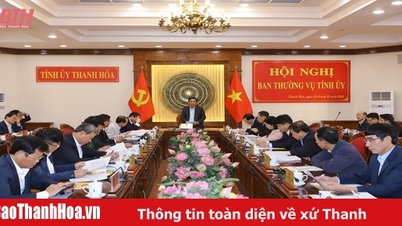


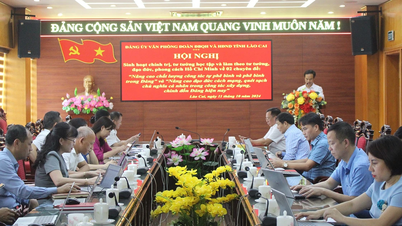
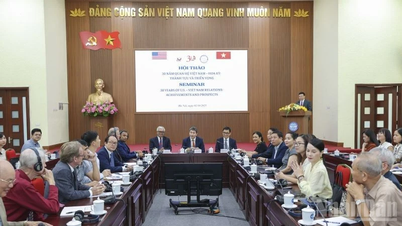

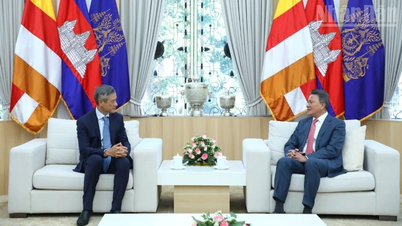
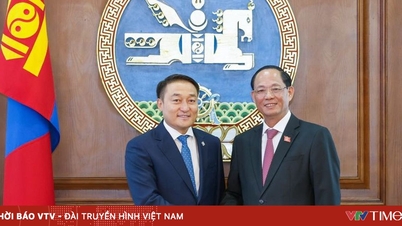

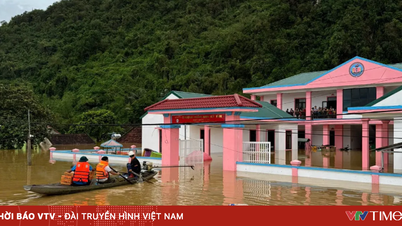
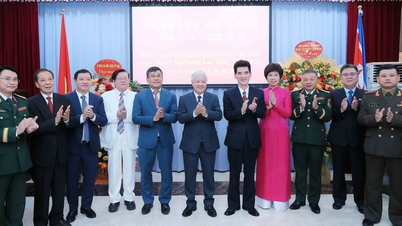

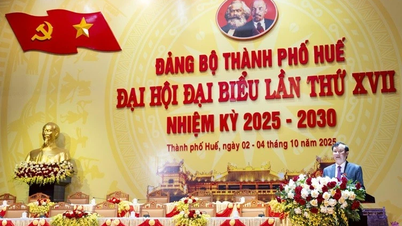



















































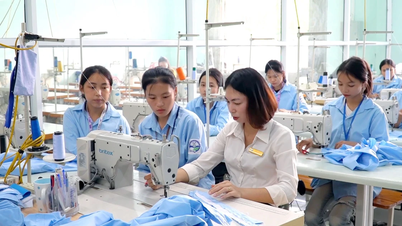

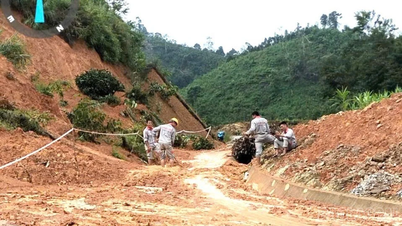
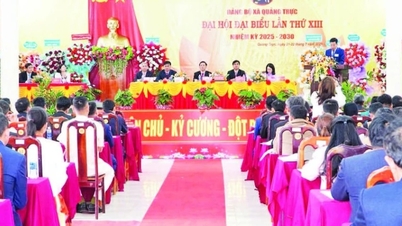















Comment (0)